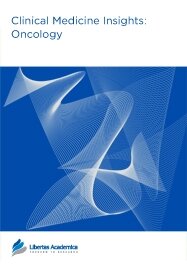

Publication Date: 11 Jun 2008
Journal: Clinical Medicine Insights: Oncology
Citation: Clinical Medicine: Oncology 2008:2 461-467

Objectives: Exosomes, a type of membrane vesicles, released from tumor cells have been shown to be capable of transferring tumor antigens to dendritic cells and activating specific cytotoxic T-lymphocytes. Recent work has demonstrated the presence of high numbers of exosomes in malignant effusions. Umbilical cord blood (UCB) is a rich source of hematopoietic stem cells and from which a significant number of dendritic cells can be produced. We hypothesized that the exosomes released from metastatic ovarian carcinoma were able to present tumor specific antigen to dendritic cells derived from unrelated umbilical cord blood, then could stimulate resting T cells to differentiate and induce effective cytotoxicity.
Study design: Exosomes were isolated by ultracentrifugation of malignant ascites from ovarian cancer patients (n = 10). Purified exosomes were further characterized by Western blot analyses and immunoelectronic microscopy. Dendritic cells were collected from unrelated umbilical cord blood and cultured in the presence of GM-CSF, IL-4 and TNF-α. Resting T cells were mixed with dentritic cells previously primed with exosomes and the cytotoxicity were measured by MTT method. T cells were activated by DCs presented with exosomes.
Results: 1) the exosomes isolated from the ascites were membrane vesicles of about 30–90nm in diameter; 2) the exosomes expressed MHC class I molecules, HSP70, HSP90, Her2/Neu, and Mart1; and 3)umbilical cord blood-derived DCs previously exosome-primed stimulated resting T cells to differentiate and produce effective cytotoxicity.
Conclusions: These results suggested that tumor-specific antigens present on exosomes can be presented by DCs derived from unrelated umbilical cord blood to induce tumor specific cytotoxicity and this may represent as a novel immunotherapy for ovarian cancer.
PDF (798.03 KB PDF FORMAT)
RIS citation (ENDNOTE, REFERENCE MANAGER, PROCITE, REFWORKS)
BibTex citation (BIBDESK, LATEX)
XML
PMC HTML

This is my second publication with Libertas. I greatly appreciate the attention to details throughout the process, especially the graphical enhancement of my figures. The author interface was very easy to use and the turnaround time on your end was swift and accurate. I compliment you and your team on your administrative efficiency and high quality of work.
Facebook Google+ Twitter
Pinterest Tumblr YouTube